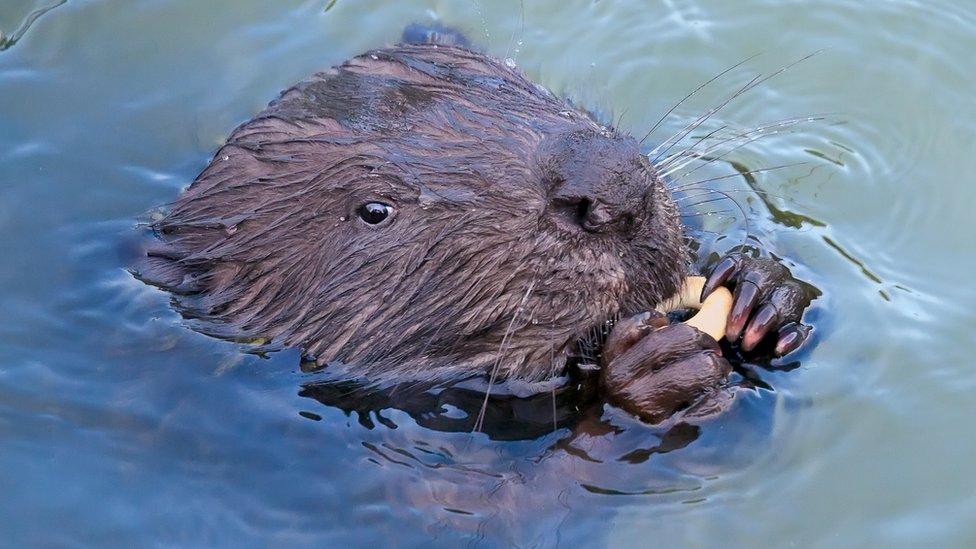First beaver born in Northumberland for 400 years
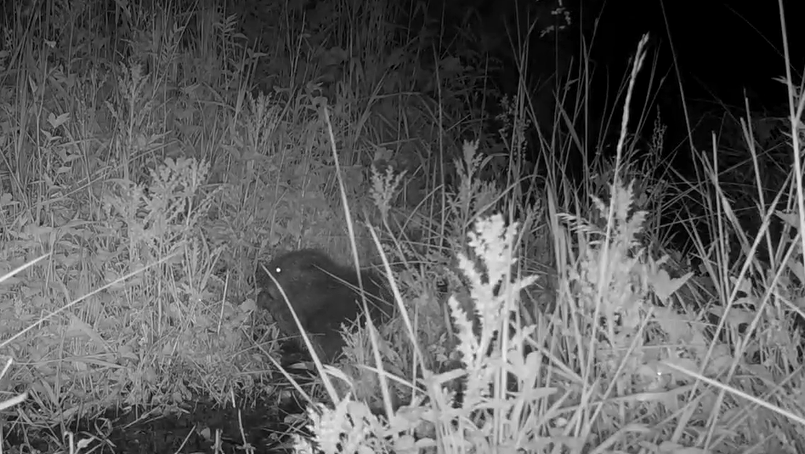
The kit was captured on a static camera and has been seen swimming and playing with the adults
- Published
A beaver has been born in Northumberland for the first time since the 1600s, the National Trust has revealed.
The kit's arrival is less than 12 months after the conservation charity released four beavers into an enclosure on the Wallington Estate, near Rothbury.
The heavily pregnant female was first spotted in May and footage captured shortly after showed a kit heading back to the family lodge and taking a dip.
Helen McDonald, lead ranger at Wallington, said: "We are thrilled that after an absence of around 400 years we now have beavers back and breeding."
She added: "The beavers have put a lot of effort into building and maintaining their lodges and getting their family settled, showing great perseverance and resilience during their relocation and then during the floods we’ve had over the last year," she added.
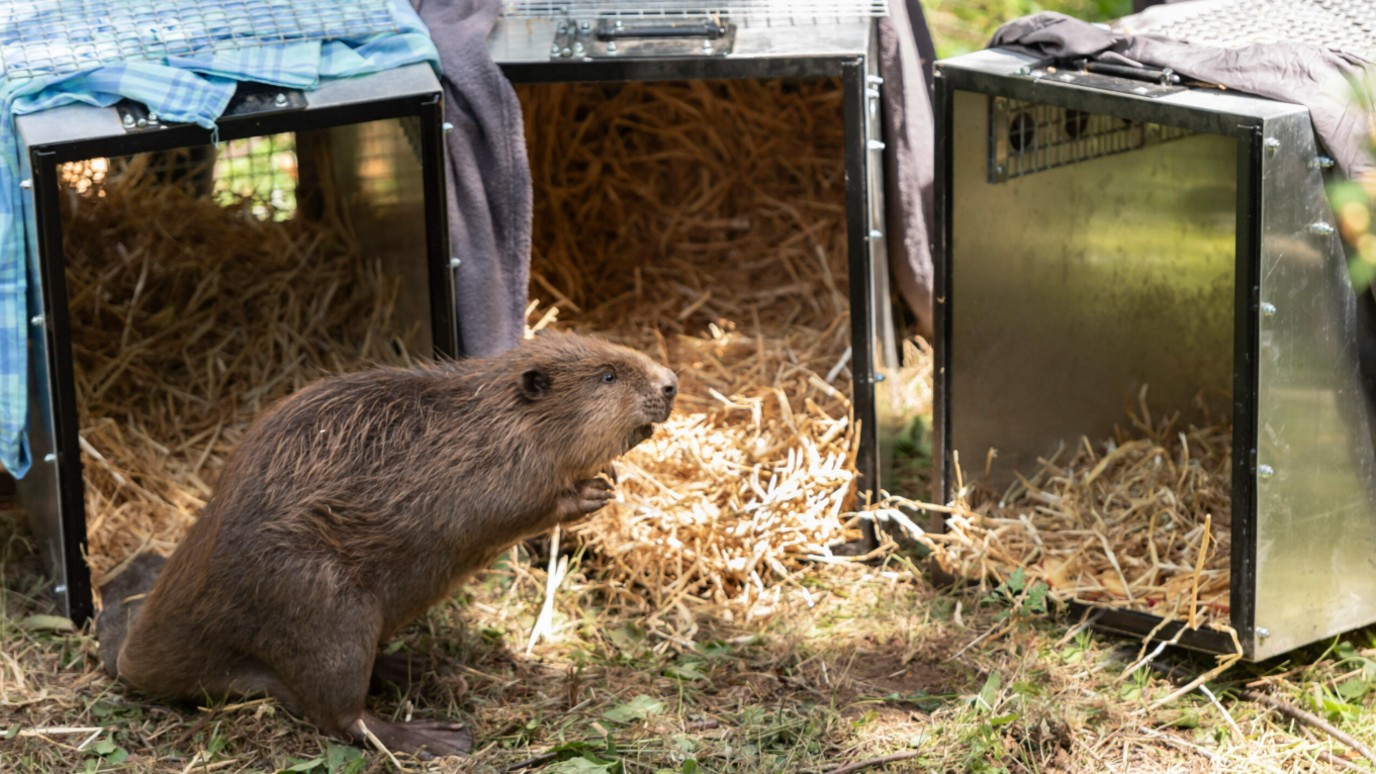
Once an everyday sight on rivers around Britain, beavers were hunted to extinction during the 16th Century
The family of beavers at Wallington is one of the few populations in northern England and the location of the charity's third release of the animals.
Since their reintroduction into an enclosure, they have built a number of dams, canals and burrows.
These are slowing the flow of water and creating ponds, pools and mudbanks, covering an area similar to half a football pitch.
The resulting wetlands have also helped to attract kingfishers, foraging Daubenton’s bats and benefitted the declining native, white-clawed crayfish.
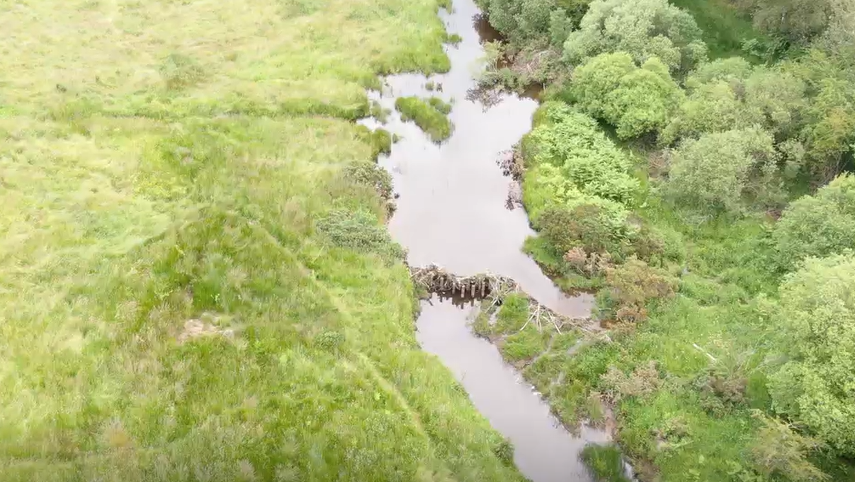
By creating dams the beavers are slowing water flows which experts say will help with the effects of increased rainfall as a result of climate change
Paul Hewitt, countryside manager for the National Trust at Wallington, said the impact of the beavers has been "nothing short of astonishing".
"With the development of dams, we are also starting to see the benefits of beavers in slowing water flows and making the flood plain more resilient to future climate change," he added.
Wallington is the largest intact estate owned by the National Trust and is three years into a major nature recovery project called Wilder Wallington, where recovery programmes for species like pine martens and red squirrels are also seeing success.
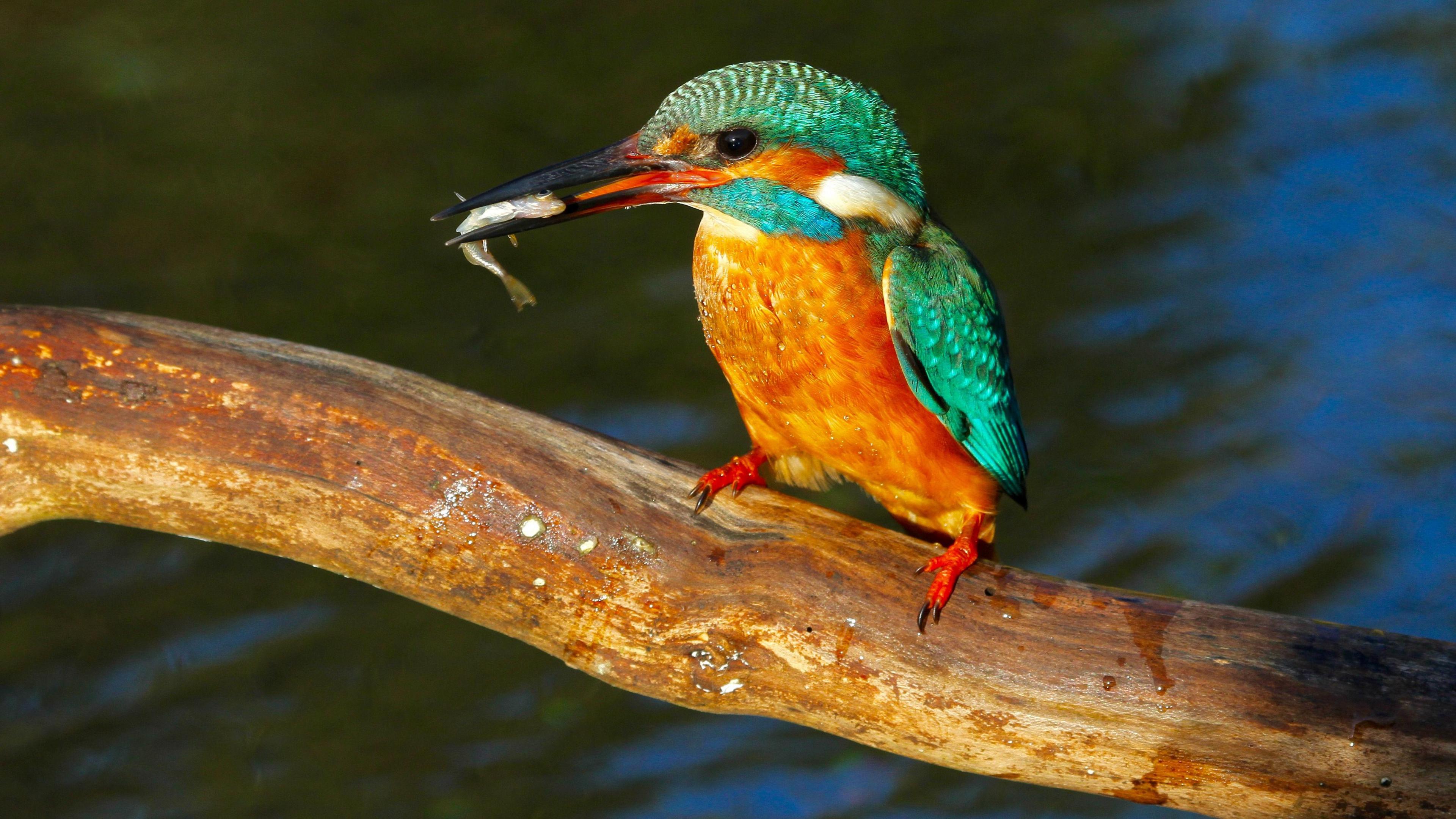
The wetlands created by the beavers have helped species like kingfishers, herons and the native white-clawed crayfish
Follow BBC North East on X (formerly Twitter), external, Facebook, external and Instagram, external. Send your story ideas to northeastandcumbria@bbc.co.uk.
Related topics
More stories from BBC North East and Cumbria
- Published12 July 2023
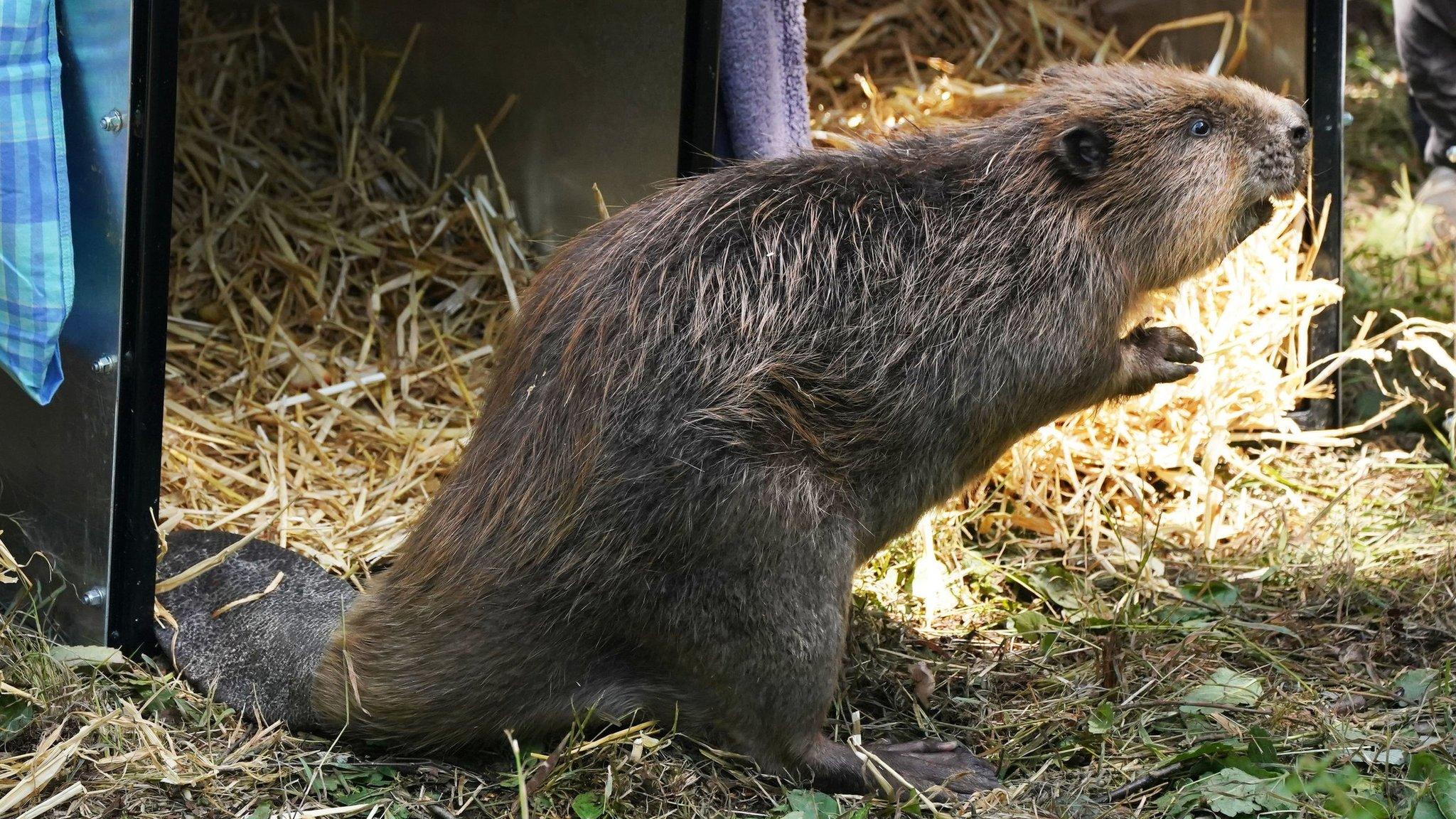
- Published19 November 2023
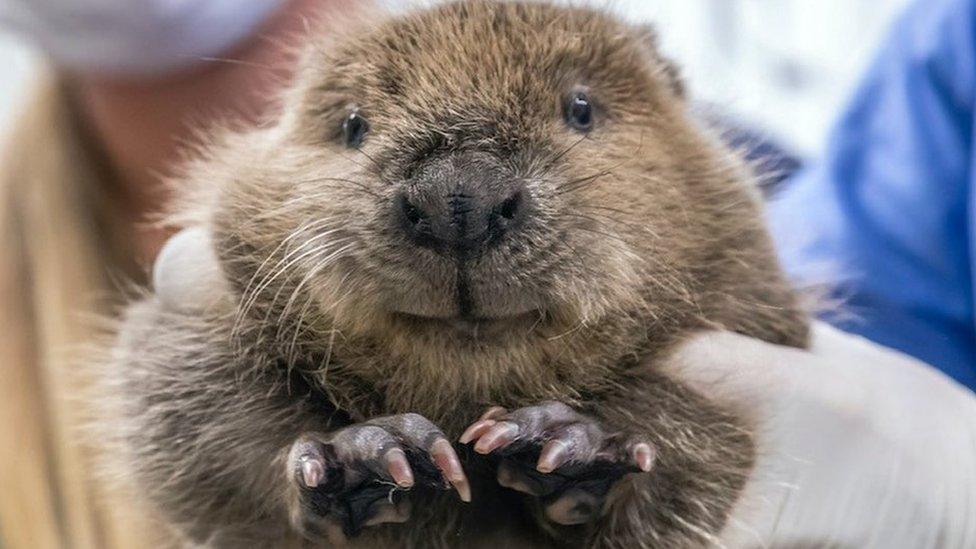
- Published13 July 2021
